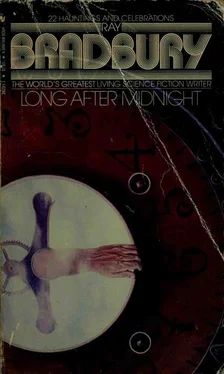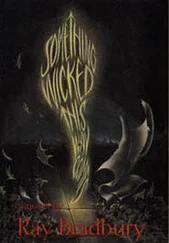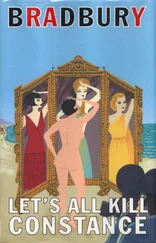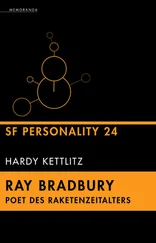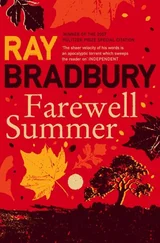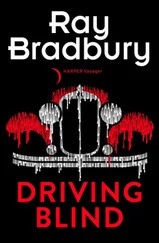Ray Bradbury - Long After Midnight
Здесь есть возможность читать онлайн «Ray Bradbury - Long After Midnight» — ознакомительный отрывок электронной книги совершенно бесплатно, а после прочтения отрывка купить полную версию. В некоторых случаях можно слушать аудио, скачать через торрент в формате fb2 и присутствует краткое содержание. Год выпуска: 1982, ISBN: 1982, Жанр: Классическая проза, на английском языке. Описание произведения, (предисловие) а так же отзывы посетителей доступны на портале библиотеки ЛибКат.
- Название:Long After Midnight
- Автор:
- Жанр:
- Год:1982
- ISBN:978-0-553-22867-0
- Рейтинг книги:5 / 5. Голосов: 1
-
Избранное:Добавить в избранное
- Отзывы:
-
Ваша оценка:
- 100
- 1
- 2
- 3
- 4
- 5
Long After Midnight: краткое содержание, описание и аннотация
Предлагаем к чтению аннотацию, описание, краткое содержание или предисловие (зависит от того, что написал сам автор книги «Long After Midnight»). Если вы не нашли необходимую информацию о книге — напишите в комментариях, мы постараемся отыскать её.
Long After Midnight — читать онлайн ознакомительный отрывок
Ниже представлен текст книги, разбитый по страницам. Система сохранения места последней прочитанной страницы, позволяет с удобством читать онлайн бесплатно книгу «Long After Midnight», без необходимости каждый раз заново искать на чём Вы остановились. Поставьте закладку, и сможете в любой момент перейти на страницу, на которой закончили чтение.
Интервал:
Закладка:
"How old are you, Bob?"
"Going on fourteen."
"You're thirteen years old."
He winced. "Yes'm."
"And do you know how old I am?"
"Yes'm. I heard. Twenty-four."
"Twenty-four."
"I'll be twenty-four in ten years, almost," he said.
"But unfortunately you're not twenty-four now."
"No, but sometimes I feel twenty-four."
"Yes, and sometimes you almost act it."
"Do I, really!"
"Now sit still there; don't bound around, we've a lot to discuss. It's very important that we understand what is happening, don't you agree?"
"Yes, I guess so."
"First, let's admit we are the greatest and best friends in the world. Let's admit I have never had a student like you, nor have I had as much affection for any boy I've ever known." He flushed at this. She went on. "And let me speak for you—you've found me to be the nicest teacher of all the teachers you've ever known."
"Oh, more than that," he said.
"Perhaps more than that, but there are facts to be faced and an entire way of life to be examined, and a town and its people, and you and me to be considered. I've thought this over for a good many days, Bob. Don't think I've missed anything, or been unaware of my own feelings in the matter. Under some circumstances our friendship would be odd indeed. But then you are no ordinary boy. I know myself pretty well, I think, and I know I'm not sick, either mentally or physically, and that whatever has evolved here has been a true regard for your character and goodness, Bob; but those are not the things we consider in this world, Bob, unless they occur in a man of a certain age. I don't know if I'm saying this right."
"It's all right," he said. "It's just if I was ten years older and about fifteen inches taller it'd make all the difference, and that's silly," he said, "to go by how tall a person is."
"The world hasn't found it so."
"I'm not the world," he protested.
"I know it seems foolish," she said. "When you feel very grown up and right and have nothing to be ashamed of. You have nothing at all to be ashamed of, Bob, remember that. You have been very honest and good, and I hope I have been, too."
"You have," he said.
"In an ideal climate, Bob, maybe someday they will be able to judge the oldness of a person's mind so accurately that they can say, This is a man, though his body is only thirteen; by some miracle of circumstance and fortune, this is a man, with a man's recognition of responsibility and position and duty; but until that day, Bob, I'm afraid we're going to have to go by ages and heights in the ordinary way in an ordinary world."
"I don't like that," he said.
"Perhaps I don't like it, either, but do you want to end up far unhappier than you are now? Do you want both of us to be unhappy? Which we would certainly be. There really is no way to do anything about us—it is so strange even to try to talk about us."
"Yes'm."
"But at least we know all about us and the fact that we have been right and fair and good and there is nothing wrong with our knowing each other, nor did we ever intend that it should be, for we both understand how impossible it is, don't we?"
"Yes, I know. But I can't help it."
"Now we must decide what to do about it," she said. "Now only you and I know about this. Later, others might know. I can secure a transfer from this school to another one—"
"No!"
"Or I can have you transferred to another school."
"You don't have to do that," he said.
"Why?"
"We're moving. My folks and I, we're going to live in Madison. We're leaving next week."
"It has nothing to do with all this, has it?"
"No, no, everything's all right. It's just that my father has a new job there. It's only fifty miles away. I can see you, can't I, when I come to town?"
"Do you think that would be a good idea?"
"No, I guess not."
They sat awhile in the silent schoolroom.
"When did all of this happen?" he said, helplessly.
"I don't know," she said. "Nobody ever knows. They haven't known for thousands of years, and I don't think they ever will. People like each other or don't, and sometimes two people like each other who shouldn't. I can't explain myself, and certainly you can't explain you."
"I guess I'd better get home." he said.
"You're not mad at me, are you?"
"Oh, gosh no, I could never be mad at you."
"There's one more thing. I want you to remember, there are compensations in life. There always are, or we wouldn't go on living. You don't feel well, now; neither do I. But something will happen to fix that. Do you believe that?"
"I'd like to."
"Well, it's true."
"If only," he said.
"What?"
"If only you'd wait for me," he blurted.
"Ten years?"
"I'd be twenty-four then."
"But I'd be thirty-four and another person entirely, perhaps. No, I don't think it can be done."
"Wouldn't you like it to be done?" he cried.
"Yes," she said quietly. "It's silly and it wouldn't work, but I would like it very much."
He sat there for a long time.
"I'll never forget you," he said.
"It's nice for you to say that, even though it can't be true, because life isn't that way. You'll forget."
"I'll never forget. I'll find a way of never forgetting you," he said.
She got up and went to erase the boards.
"I'll help you," he said.
"No, no," she said hastily. "You go on now, get home, and no more tending to the boards after school. I'll assign Helen Stevens to do it."
He left the school. Looking back, outside, he saw Miss Ann Taylor, for the last time, at the board, slowly washing out the chalked words, her hand moving up and down.
He moved away from the town the next week and was gone for sixteen years. Though he was only fifty miles away, he never got down to Green Town again until he was almost thirty and married, and then one spring they were driving through on their way to Chicago and stopped off for a day.
Bob left his wife at the hotel and walked around town and finally asked about Miss Ann Taylor, but no one remembered at first, and then one of them remembered.
"Oh, yes, the pretty teacher. She died in 1936, not long after you left."
Had she ever married? No, come to think of it, she never had.
He walked out to the cemetery in the afternoon and found her stone, which said, "Ann Taylor, born 1910, died 1936." And he thought, Twenty-six years old. Why, I'm three years older than you are now, Miss Taylor.
Later in the day the people in the town saw Bob Spaulding's wife strolling to meet him under the elm trees and the oak trees, and they all turned to watch her pass, for her face shifted with bright shadows as she walked; she was the fine peaches of summer in the snow of winter, and she was cool milk for cereal on a hot early-summer morning. And this was one of those rare few days in time when the climate was balanced like a maple leaf between winds that blow just right, one of those days that should have been named, everyone agreed, after Robert Spaulding's wife.
The Wish
A whisper of snow touched the cold window.
The vast house creaked in a wind from nowhere.
"What?" I said.
"I didn't say anything." Charlie Simmons, behind me at the fireplace, shook popcorn quietly in a vast metal sieve. "Not a word."
"Damn it, Charlie, I heard you. .. ."
Stunned, I watched the snow fall on far streets and empty fields. It was a proper night for ghosts of whiteness to visit windows and wander off.
"You're imagining things," said Charlie.
Am I? I thought. Does the weather have voices? Is there a language of night and time and snow? What goes on between that dark out there and my soul in here?
For there in the shadows, a whole civilization of doves seemed to be landing unseen, without benefit of moon or lamp.
Читать дальшеИнтервал:
Закладка:
Похожие книги на «Long After Midnight»
Представляем Вашему вниманию похожие книги на «Long After Midnight» списком для выбора. Мы отобрали схожую по названию и смыслу литературу в надежде предоставить читателям больше вариантов отыскать новые, интересные, ещё непрочитанные произведения.
Обсуждение, отзывы о книге «Long After Midnight» и просто собственные мнения читателей. Оставьте ваши комментарии, напишите, что Вы думаете о произведении, его смысле или главных героях. Укажите что конкретно понравилось, а что нет, и почему Вы так считаете.
